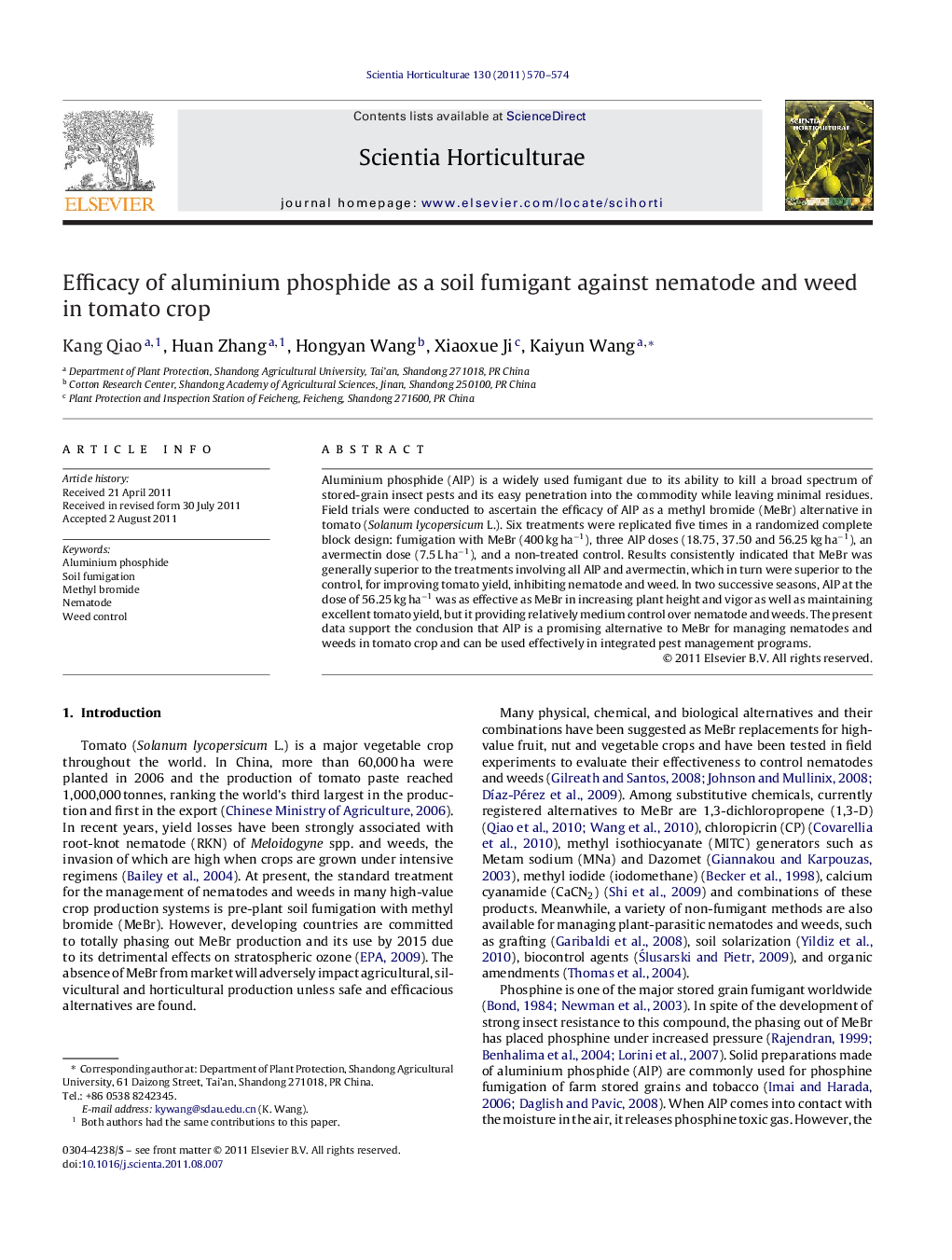| Article ID | Journal | Published Year | Pages | File Type |
|---|---|---|---|---|
| 4567967 | Scientia Horticulturae | 2011 | 5 Pages |
Aluminium phosphide (AlP) is a widely used fumigant due to its ability to kill a broad spectrum of stored-grain insect pests and its easy penetration into the commodity while leaving minimal residues. Field trials were conducted to ascertain the efficacy of AlP as a methyl bromide (MeBr) alternative in tomato (Solanum lycopersicum L.). Six treatments were replicated five times in a randomized complete block design: fumigation with MeBr (400 kg ha−1), three AlP doses (18.75, 37.50 and 56.25 kg ha−1), an avermectin dose (7.5 L ha−1), and a non-treated control. Results consistently indicated that MeBr was generally superior to the treatments involving all AlP and avermectin, which in turn were superior to the control, for improving tomato yield, inhibiting nematode and weed. In two successive seasons, AlP at the dose of 56.25 kg ha−1 was as effective as MeBr in increasing plant height and vigor as well as maintaining excellent tomato yield, but it providing relatively medium control over nematode and weeds. The present data support the conclusion that AlP is a promising alternative to MeBr for managing nematodes and weeds in tomato crop and can be used effectively in integrated pest management programs.
► Our study finds a new use for aluminium phosphide, which may be possible to extend the product's life cycle. ► Our results provide some practical information for evaluating application prospects of aluminium phosphide in China. ► Our study adds significant information from trials in China, thus providing literature that is lacking from this country.
